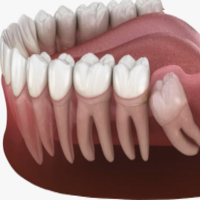Third molar extractions, commonly known as wisdom teeth surgery, are among the most frequently performed surgical procedures in dentistry. While often considered routine, these extractions demand clinical precision, informed decision-making, and adherence to established standards of care to ensure patient safety and successful outcomes.
As both litigation risks and patient expectations grow, dentists must be well-versed not only in surgical technique but also in medico-legal protocols, assessment standards, and post-operative management.
What Does “Standard of Care” Mean in Wisdom Teeth Surgery?
In dental practice, the standard of care refers to the level of skill, diligence, and judgment that a reasonably competent dentist would provide under similar circumstances. In the context of third molar extractions, this encompasses everything from initial diagnosis to long-term follow-up.
Meeting the standard of care involves:
- Proper clinical and radiographic evaluation
- Clear documentation of risks and informed consent
- Safe and effective surgical execution
- Appropriate post-operative instructions and follow-up
- Management of potential complications
Failure to follow these steps can result in avoidable complications—and in some cases, legal consequences.
Essential Components of the Standard of Care in Third Molar Surgery
1. Comprehensive Patient Assessment
Prior to extraction, a thorough evaluation is essential. This includes:
- Medical and dental history
- Review of medications and systemic conditions
- Clinical exam of soft tissue, occlusion, and symptoms
- Radiographic assessment (panoramic radiograph or CBCT when needed)
Proper classification of impaction (e.g., Pell & Gregory or Winter’s classification) helps guide treatment planning and risk management.
2. Informed Consent
Dentists must clearly communicate:
- The nature of the procedure
- Associated risks (nerve injury, dry socket, infection)
- Alternative treatment options
- Post-operative expectations
Consent should be documented in writing and discussed verbally with the patient.
3. Surgical Protocol and Sterile Technique
A controlled surgical environment minimizes the risk of infection and procedural errors. Key considerations include:
- Local anesthesia protocol and optional sedation
- Flap design that ensures visibility and preserves tissue
- Conservative bone removal and odontosection
- Hemostasis and tension-free wound closure
- Immediate post-surgical assessment and documentation
4. Postoperative Management and Complication Handling
Post-op care is a critical part of the standard of care. Dentists should provide:
- Written and verbal home care instructions
- Pain and infection control with appropriate medication
- A plan for follow-up appointments
- Prompt management of complications such as alveolar osteitis, swelling, or nerve symptoms
Inadequate post-op care is a common source of patient dissatisfaction and medicolegal claims.
Why Advanced Training Matters
Even experienced clinicians can fall short of the standard if they lack current training. Ongoing education, particularly hands-on surgical training, prepares dentists to handle:
- Complex impactions
- Anatomical variations
- Surgical complications
- Medically compromised patients
Advanced courses that include live-patient third molar surgeries, imaging interpretation, and supervised clinical decision-making help practitioners deliver care that aligns with modern standards and expectations.
Raising the Bar for Oral Surgery in General Practice
With proper training and systems in place, general dentists can safely perform many third molar extractions in their own offices. This improves care access for patients and increases the scope and confidence of the clinician.
However, performing these procedures without meeting the standard of care can expose both patient and practitioner to unnecessary risk.
By staying updated on guidelines, documenting thoroughly, and engaging in practical training, dentists can:
- Deliver safer, more efficient surgical care
- Improve patient satisfaction
- Protect themselves professionally and legally
Conclusion
Wisdom teeth surgery is more than a routine procedure—it’s a surgical responsibility that must meet defined standards of care. Through comprehensive assessment, patient communication, precise execution, and proper follow-up, dentists can uphold those standards and offer truly high-quality care.
For those seeking to enhance their skills and confidence, investing in clinical training focused on third molar extractions is an essential step toward excellence in modern dentistry.



